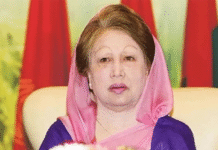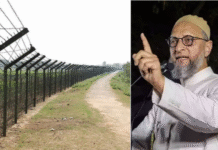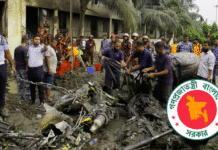
After ten days of internet blackout orchestrated by the Awami League regime, mobile internet was restored on 28 July. However, key social media platforms including Facebook, TikTok, and WhatsApp remained blocked.
At approximately 3 PM local time, 4G mobile internet became accessible across the country, ending a shutdown that had paralysed online communication and disrupted daily life for millions. While YouTube was accessible via broadband connections, mobile users were still unable to stream the platform.
We have carried out raids in the capital and we will continue the raids until the perpetrators are arrested.
Meanwhile, block raids continued across key neighbourhoods as security forces intensified crackdowns to locate student leaders who had been coordinating the protests. Newspapers, on 28 July, reported that over 120 students were arrested during overnight operations. The reports also noted increased police crackdowns and late-night searches in both university areas and residential blocks.
The weapons seen with police appear to be Chinese rifles, which are typically used by the military or paramilitary forces like the BGB. Armed police may have access to them, but regular police are not supposed to.
Two coordinators of the Anti-Discrimination Student Movement were detained in overnight raids. Nusrat Tabassum, a Dhaka University student, was picked up from her Mirpur home by DB officers. Hours earlier, Arif Sohel of Jahangirnagar University was detained by individuals identifying as DB and CID officials. Concerned officials confirmed neither of these detentions.
“We have carried out raids in the capital and we will continue the raids until the perpetrators are arrested,” said the then Dhaka Metropolitan Police Joint Commissioner Biplob Kumar Sarker. “We are not arresting general students, only those who vandalised government properties and set them on fire.”
The national dailies also reported that the protests over quota reform led to the deaths of at least 210 people, with 113 of them identified as children, teenagers, or young adults – including 45 students. Most had fatal gunshot wounds. Between 16 and 28 July, at least 253 students were arrested across 18 districts.
“The weapons seen with police appear to be Chinese rifles, which are typically used by the military or paramilitary forces like the BGB. Armed police may have access to them, but regular police are not supposed to,” security analyst Brigadier General (Retd.) M Sakhawat Hossain told Prothom Alo. “Lethal weapons are not used to suppress unarmed civilian protests anywhere in the world, except war zones,” he added.









